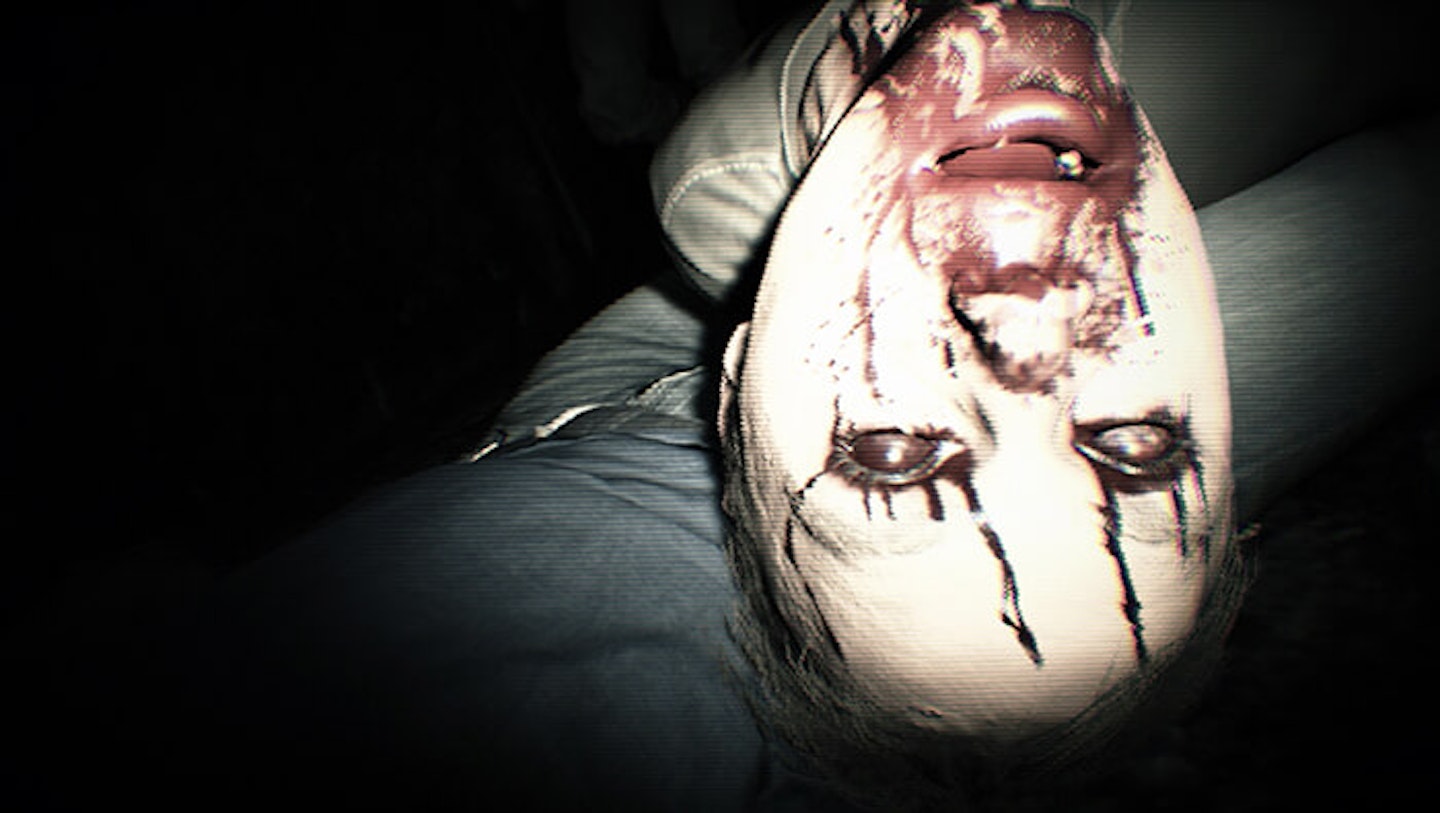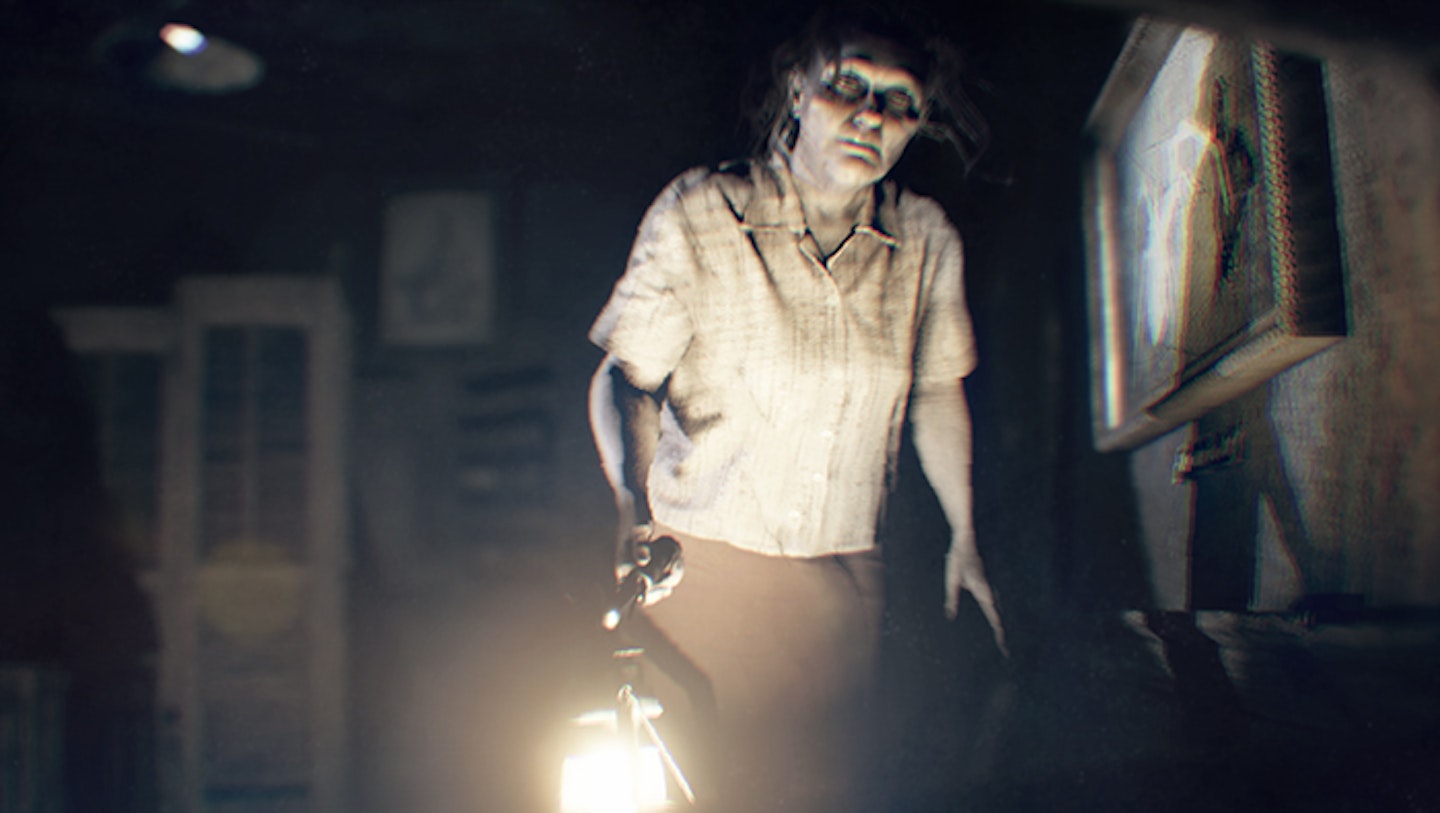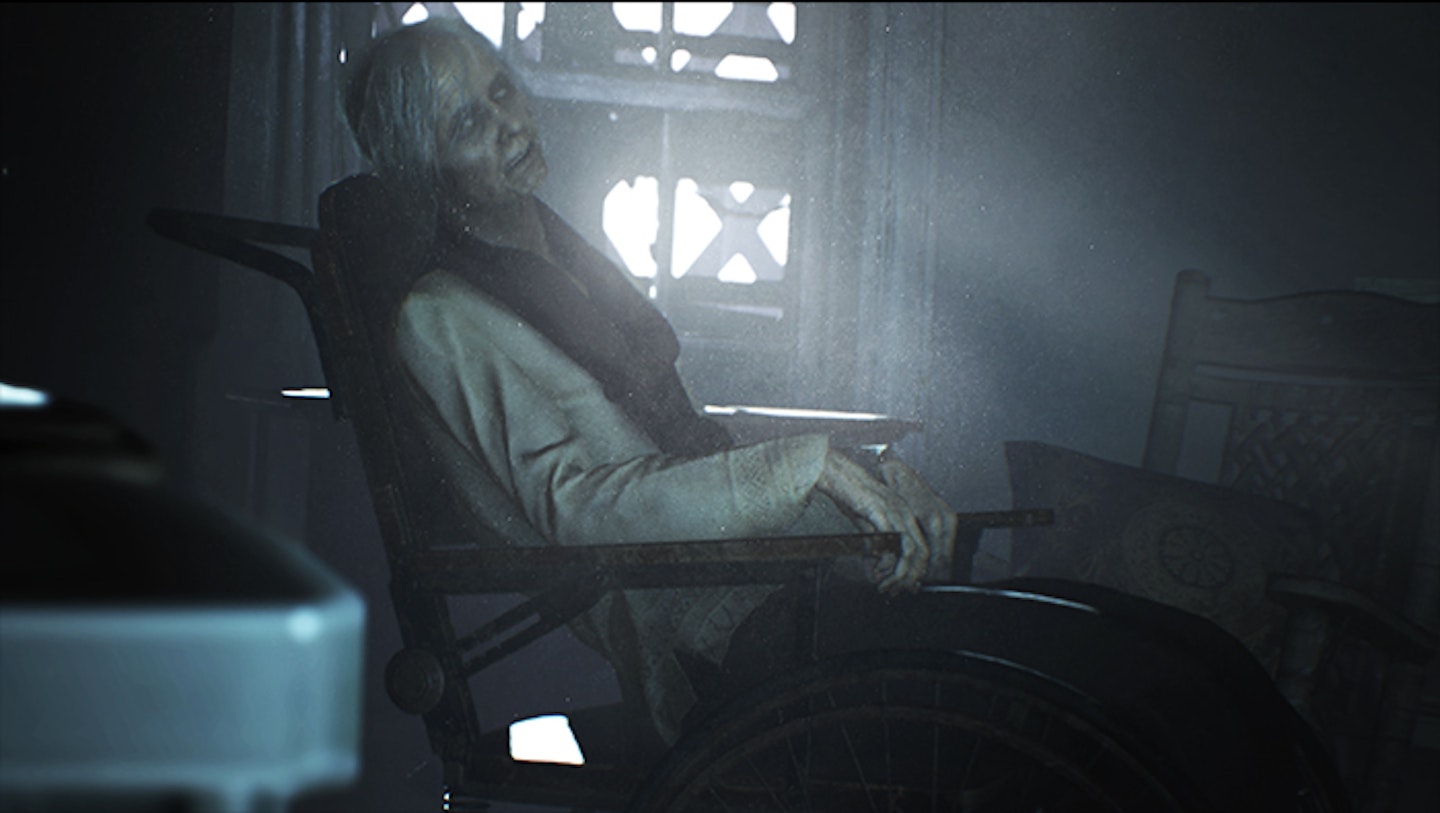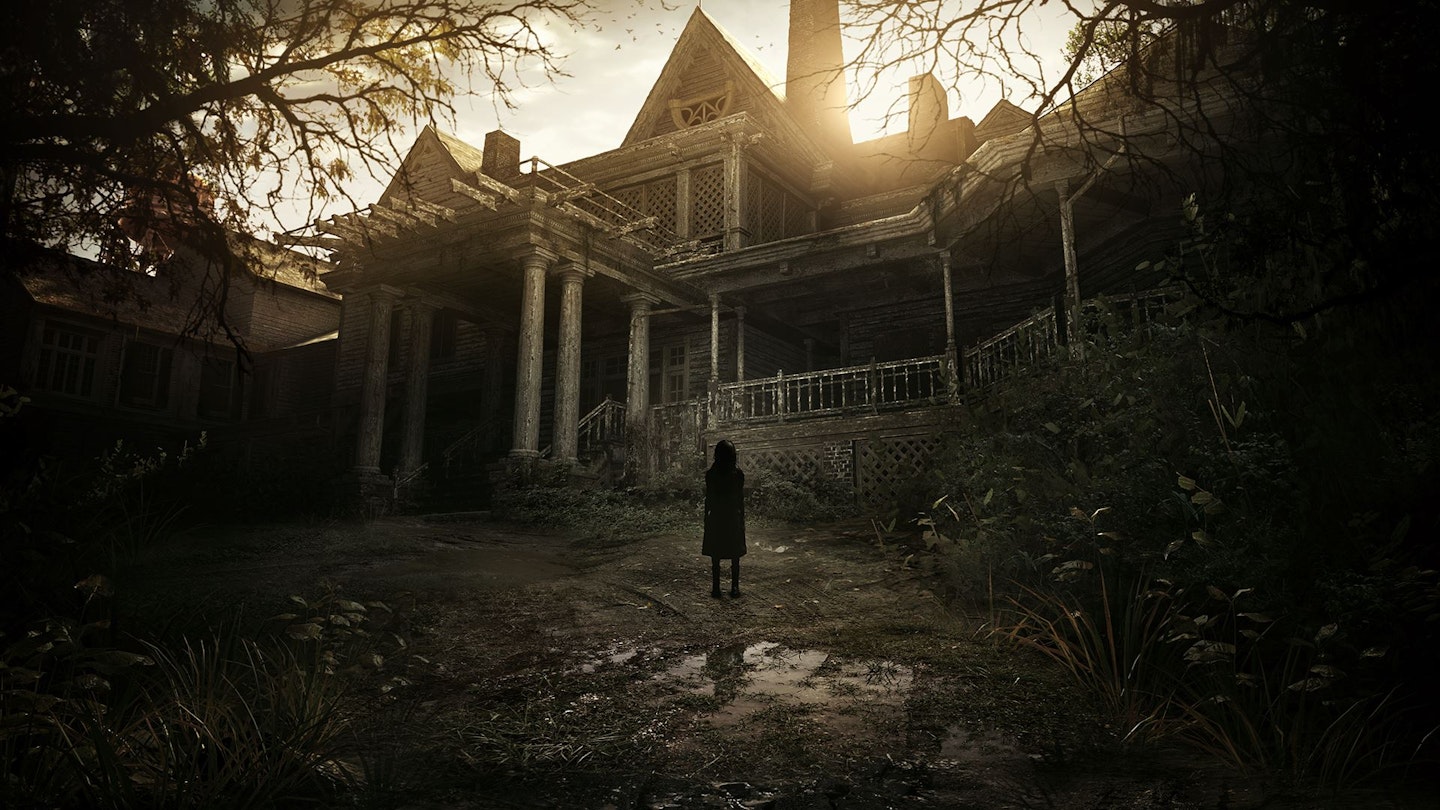Considering that it’s the franchise which established survival-horror as a games genre, Resident Evil seriously lost its way in recent years: 2005’s Resident Evil 5 and 2012’s Resident Evil 6 were littered with gratuitous Michael Bay-style action sequences which left the franchise’s fan-base unimpressed. Luckily, Resident Evil 7 marks a major rethink by developer/publisher Capcom, so action sequences are out and horror is back in a big way, turning those of a nervous disposition into quivering jelly.

One of the triggers for the reboot is the advent of virtual reality as a mainstream technology, and the whole of Resident Evil 7 is playable on the PlayStation VR. That, in turn, has led to another major change to the franchise: the familiar third-person viewpoint from all previous Resident Evil games has been ripped out in favour of a first-person one. Incredibly, Capcom has managed to do that without in any way altering or compromising Resident Evil’s gameplay feel. In other words, you still lumber around pretty slowly, and aiming is ponderous. Which sounds bad, but isn’t: there’s no mistaking Resident Evil 7 for anything other than a survival-horror game, unlike its two immediate predecessors.
Horror is back in a big way, turning those of a nervous disposition into quivering jelly.
Having said that, for its first hour, it feels more like an interactive horror film than a Resident Evil game. You play Ethan Winters, an ordinary guy investigating the disappearance – years earlier – of his wife Mia. He pitches up at a hideously creepy abandoned house in Dulvey, Louisiana, armed with nothing other than a flashlight. After working out how to break in, he must explore, gathering useful objects and solving puzzles to gain access to new parts of the house. One new game mechanic is introduced early: he finds a VHS tape and, when he puts it into a VCR, is able to jump temporarily into one of the characters portrayed in the video – in the first instance, a hapless ghost-hunter making a sensationalist TV show. The VHS videos which sporadically crop up through the game prove a very useful (and clever) means of rehearsing some of the game’s more elaborate puzzles.
From the off, the game’s atmosphere is claustrophobic, dark and amazingly creepy, and that never lets up – even towards the end, when Resident Evil 7 builds to a crescendo in a much more linear fashion than its early stages, which cleverly re-use levels (and even, amusingly, bosses, who mutate further each time you meet them), providing an illusion of an open-world game. Like Hitman or Dishonored, you get to know every inch of the various fetid mansions and other areas in the game.

Gameplay-wise, Resident Evil 7 feels exactly like the first three Resident Evils (plus the Revelations spin-offs), so it’s all about collecting useful objects, keys, weapons and ammo, dealing with bosses and solving puzzles, in order to speed your escape from the house and work out what is going on in the twisted situation in which you find yourself.
After an early encounter with Mia, in which Ethan discovers something is most definitely not right with her (she cuts off his hand, soon miraculously reattached, with a chainsaw), he ends up in the clutches of a hilarious redneck family with a penchant for cutting off their own fingers and limbs, and a taste for human innards. Particularly in the early stages, there is a surprising amount of black humour in evidence.
As Ethan bids to escape to freedom, aided by a girl called Zoe who guides him by ringing the telephones in the various houses, he must dispatch the family members, using ever more powerful weaponry – although, as befits a Resident Evil game, the shotgun is still the best weapon (closely followed by the machine-gun). Countless nods to past Resident Evil games, and some of the franchise’s conventions, have been usefully tweaked: the crucial inventory system has been rendered much more accessible and easier to navigate (although it remains ungenerous in terms of the number of slots it provides) and while you find green herbs, for example, they (and various other things, like gunpowder) must be combined with “chemical fluid” to make health-restorers and the like.

Resident Evil 7 works beautifully in PlayStation VR: the headset brings a sense of presence and immersion which ratchets up the impact of the jump-shocks and plentiful moments of horror in the game. The first time you nail a mutant with a headshot, the resulting explosion of mutant-gunk will send you ducking. You can fiddle with the control system on PlayStation VR, but the default one is spot-on, once you learn to leave the right joystick alone when dispatching mutants: gun-aiming is performed by moving your head. And the ability to peer into things means you find more hidden objects in VR. But there is one pay-off: you really notice how much lower-resolution the game is in VR. 7 is the first Resident Evil game to use Capcom’s new engine, and it really looks superb on a TV screen.
Narrative takes a back seat to atmosphere throughout.
While the story – cleverly told in flashbacks and via found objects, which also eliminates the cheesy dialogue that had crept into recent Resident Evil games – takes a different route to its predecessors (familiar characters are all but absent), it pulls its threads together quite well towards the end. But in many ways, narrative takes a back seat to atmosphere throughout, which proves pretty welcome.
There are quibbles to be had. It’s too short – our first, leisurely play-through took a barely adequate 18 hours, and we could have chopped a lot of time off that. There isn’t much by way of replay value: you unlock a new difficulty level, appropriately called Mayhem, and a new weapon and ability, but the lack of a Horde mode-style chance to take on waves of mutants (like Revelations’ Raid Mode) is glaring, and will hopefully be addressed via downloadable content. Also, when playing on PlayStation VR, you sometimes get to see your hands, which, disconcertingly, are cut off at the wrist.
But Resident Evil 7’s return to the proper survival-horror values which rendered the first three games so compelling pays off in spades. It’s deliciously terrifying – some people simply won’t be able to cope with the harrowing nature of playing the game in VR. And while it changes many aspects which you previously would have said were fundamental, it feels more like a Resident Evil game than any other Resident Evil game has for years. An essential purchase for Resi fans and horror-lovers.
